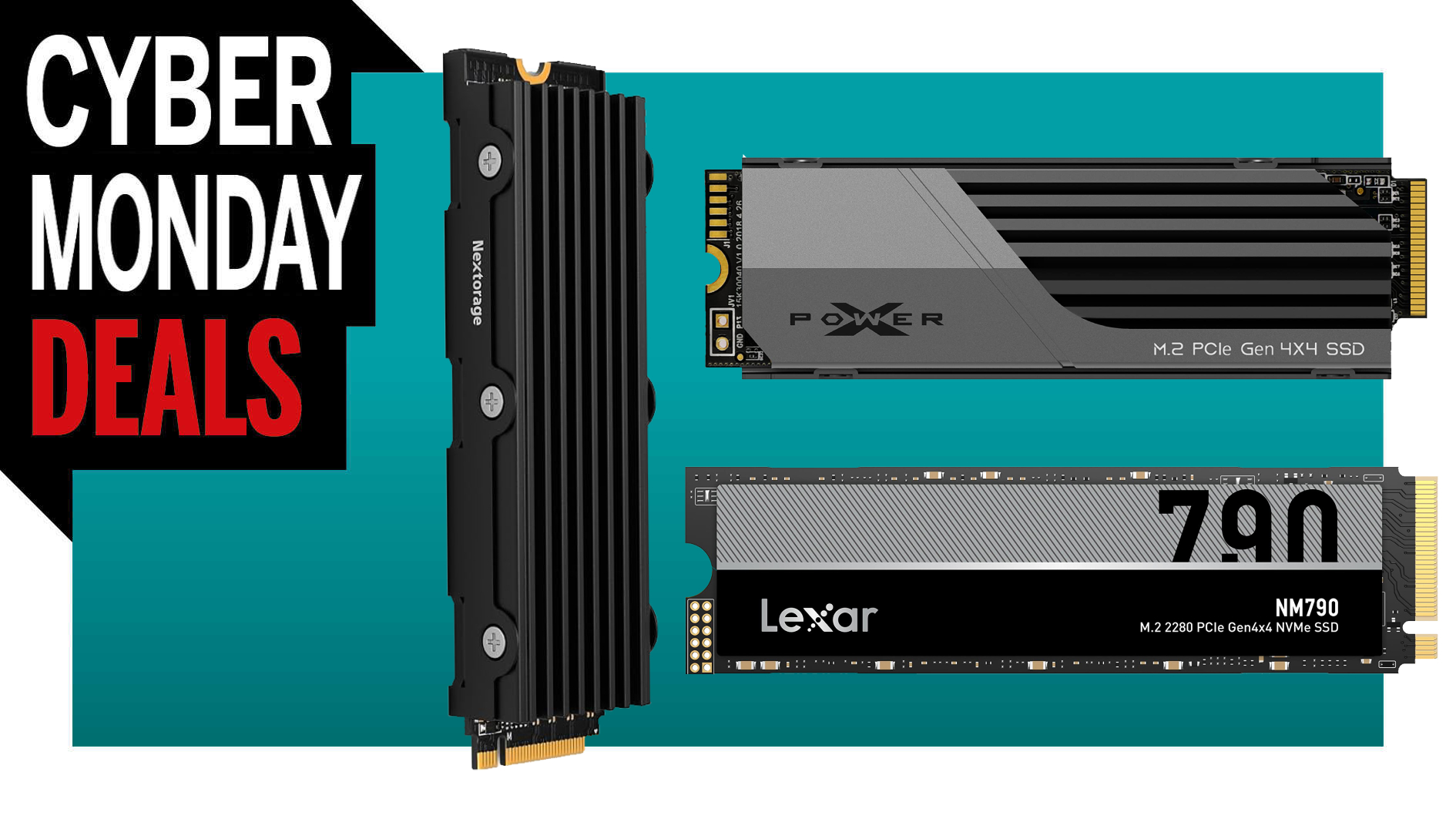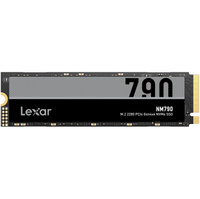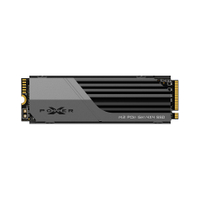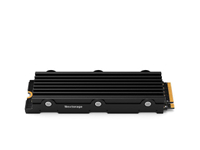The Samsung 990 Pro isn't the best Cyber Monday 2TB SSD deal: I'd buy one of these instead
The Samsung ain't bad, but in terms of value for money and equivalent performance, here are three alternatives I'd go for instead.

Deals in this article:
- Samsung 2TB 990 Pro |
$199.99$119.99 - Lexar NM790 2TB |
$124.99$109.99 - WD Black SN850X 2TB |
$131.49$119.99 - Nextorage 2TB |
$249.99$99.99
Cyber Monday PC gaming deals are now well underway, and everything from CPUs to SSDs is seeing discounts. But when it comes to the latter, there's a recommendation that keeps hitting our feeds that I somewhat disagree with: The Samsung 990 Pro Series 2TB.
Don't get me wrong: The 990 Pro is a fine drive, and I'd even go far as to call it excellent when it comes to raw performance. 7,450 MB/s sequential read speed, 6900 MB/s write, and it comes from a well-known brand. (Albeit one that suffered some PR damaging firmware issues recently.)
But when it comes down to it, the truth is that, while the 990 Pro is not a bad pick for a 2TB SSD, it's simply not the best value at the prices we're currently seeing. Best Buy currently has the 2TB Samsung 990 Pro on discount at just under $120, but for that money there are some real alternatives to consider.
Below are three contenders that I reckon go toe-to-toe with the Samsung, and as far as bang-for-your-buck goes, come out on top.
Lexar NM790 2TB
Lexar NM790 | 2TB | PCIe 4.0 | 7,400MB/s read | 6,500MB/s write | $124.99 $109.99 at Amazon (save $15)
Lexar has put together a superb SSD in the NM790, and the best bit is it's surprisingly cheap. Thanks to high layer NAND and a low-power controller, you can get tons of storage here on an energy-efficient and great performing drive for not much cash. Often much less cash than the competition, even. Read our Lexar NM790 (4TB) review for more.
First up, let's take a look at the Lexar NM790 2TB. I actually use this exact model as the main drive in my personal system, and can confirm it's as fast as you could possibly expect a Gen 4 drive to be. Yes, on paper it's ever so slightly slower than the Samsung, but by such a small margin you're never, ever going to notice outside of a synthetic benchmark, and even then you're well within margins of error.
The real kicker here is the price. The Lexar makes efficient use of high layer NAND and a relatively low power controller to deliver surprising levels of real world performance while remaining at a very affordable price point, even compared to the discounts we're seeing on the 990 Pro. That makes it a bit of a no-brainer comparison if you're looking for a large and fast SSD.
Installing a new NVMe should be a set and forget experience, and I can confirm that the Lexar has been a completely hassle-free and super performant joy to run, for much less than I expected to pay. And if you'd like a second opinion, our very own Jacob reviewed the 4TB version and came away just as impressed as I.
Silicon Power XS70 2TB
Silicon Power XS70 | 2TB | NVMe | PCIe 4.0 | 7300 MB/s Read | 6800 MB/s Write | $124.99 $104.99 at Amazon (save $19)
The XS70 was going cheaper last month, but we've seen it pop back up in price recently. It packs rather a large bang for your buck with its fast read and write times, at least. While the software side of things may be a little lacking, we were impressed with the overall performance and value proposition of this drive. Read our review here.
If for some reason the Lexar doesn't float your NVMe boat then how about this Silicon Power XS70? With sequential read/write speeds of 7,300/6,800 MB/s respectively it's a brilliant Gen 4 drive with great performance from an established brand with a good reputation. This version comes with a big heatsink for great cooling, and while we have seen it cheaper it's still got similar real world performance to the 990 Pro at a much better price.
Nextorage Japan 2TB
Nextorage Japan | 2TB | NVMe | PCIe 4.0 | 7300 MB/s Read | 6900 MB/s Write | $249.99 $99.99 at Newegg (save $150)
For just a couple of dollars over the admittedly excellent Silicon Power Xs70, you can have the equally outstanding Nextorage 2TB. Except this one comes with a quality heatsink. It's designed to ensure it doesn't overheat in a PS5. But that just means it's a decent heatsink that's passed some proper testing. Perfect if your motherboard's M.2 cooling doesn't come as standard, is inadequate or if you've just lost the heat spreader.
And last but certainly not least, I reckon it's seriously worth taking a look at the Nextorage Japan 2TB. While the name might not be familiar to some, it's worth mentioning that Nextorage was originally created by Sony to build SSDs for the PlayStation 5, before Phison took a controlling stake and started imbuing them with some of its very best controllers, including the mighty Phison E18.
This little beastie nearly matches the 990 Pro for performance with a sequential read/write of 7300/6900 MB/s respectively, but at a much reduced price. Not only that, but it comes with a seriously chunky heatsink to make sure that thermal issues never get in the way of this drive performing at its very best.
Some might still consider a buying a Nextorage drive to be a bit of a left field option, but these days it's starting to look like the brand to beat when it comes to budget priced SSDs that deliver the performance goods.
And there we have it, three cost-effective alternatives to the Samsung 990 Pro that I reckon will give you near-as-makes-no-difference SSD performance for less. Samsung might be one of the most recognisable brands when it comes to NVMe drives, but as we've seen here, there are plenty of contenders stepping up to the plate to provide you with similar SSD performance for not a whole lot of money.
Bring on the competition, that's what I say.
Keep up to date with the most important stories and the best deals, as picked by the PC Gamer team.

Andy built his first gaming PC at the tender age of 12, when IDE cables were a thing and high resolution wasn't—and he hasn't stopped since. Now working as a hardware writer for PC Gamer, Andy's been jumping around the world attending product launches and trade shows, all the while reviewing every bit of PC hardware he can get his hands on. You name it, if it's interesting hardware he'll write words about it, with opinions and everything.




